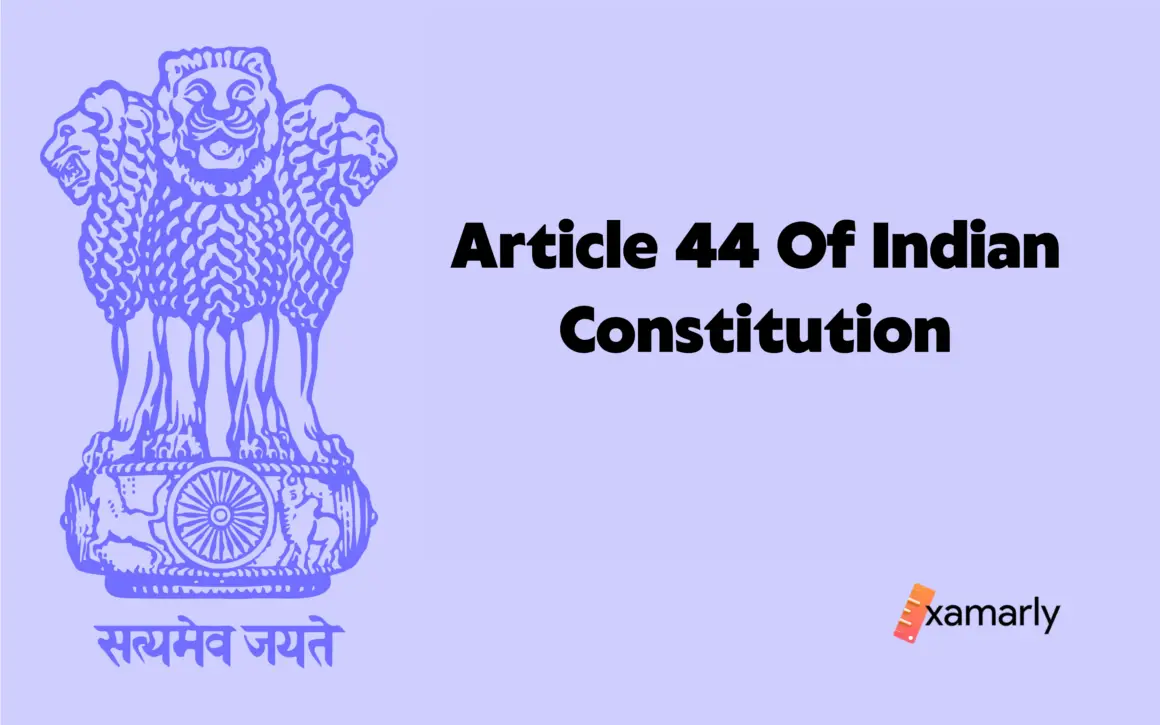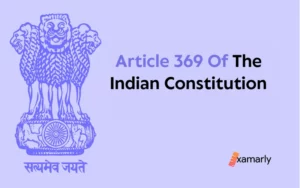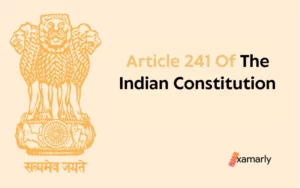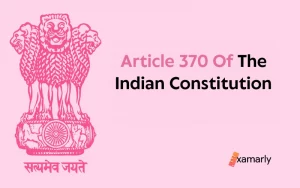Article 44 of the Indian constitution accords with the Directive Principles of State Policy. The Article 44 of the Indian constitution concerns Uniform Civil Code (UCC). “It states that the State shall endeavor to secure for the citizens a Uniform Civil Code (UCC) throughout the territory of India.”
- Was Article 44 Of The Indian Constitution Necessary?
- What is the Uniform Civil Code (UCC) According to the Article 44?
- Origin and History of Uniform Civil Code
- Uniform Civil Code in India
- ANALYZING UCC
- Does India need to implement UCC?
- Debates and Arguments Related to Uniform Civil Code
- Against
- Favor
- Challenges Faced During Implementation of the Uniform Civil Code
- Summing Up
Was Article 44 Of The Indian Constitution Necessary?
This Article was drafted to bring all communities together by establishing a common position on issues that are currently governed by disparate personal laws. It is based on the idea that there is no fundamental connection between religion and personal law in a civilized society.
Article 44 of the Indian constitution is necessary to overcome discrimination against vulnerable people and bring together various cultural groups nationwide.
What is the Uniform Civil Code (UCC) According to the Article 44?
Regardless of a person’s faith, caste, ethnicity, etc., the UCC refers to a unified code or rule for all citizens. All personal laws of India are to be replaced by the UCC. It falls under the state’s Directive Principles, hence it is neither a fundamental right nor is it protected by the Constitution. It is merely an objective or standard that a country needs to pursue.
Personal laws usually concentrate on the following:
- marriage and divorce
- custody and guardianship
- adoption and maintenance
- succession and inheritance
Origin and History of Uniform Civil Code
The UCC has its roots in colonial India, a time when British Rule dominated the nation.
Pre-Independence (Colonial Era- 1858-1947)
- The East India Company (1757–1858) attempted to alter Indian social and religious norms before the arrival of the British rulers by imposing Western beliefs on the country.
- The Lex Loci Report highlighted the demand for homogeneity in the formulation of Indian law in October 1840 about crimes, evidence, and contracts but suggested that the personal laws of Hindus and Muslims be kept apart from such codification.
- The Queen’s Proclamation of 1859 guaranteed complete non-interference in issues of religion.
Due to this, criminal laws were made uniform for the whole nation, but personal laws were regulated separately by various communities.
Era After Colonization (1947-1985)
- In 1948–1951 and the 1951–1954 sessions, the Indian Parliament debated the Hindu law committee’s report. A uniform civil code was what Jawaharlal Nehru, the nation’s first prime minister, along with his followers and female members, pushed for.
- A uniform civil code was a demand made during the constitution’s development by well-known figures like Jawaharlal Nehru and Dr. B.R. Ambedkar. But because of resistance from religious conservatives and a general lack of awareness at the time, they decided to incorporate the UCC in the Directive Principles of State Policy (DPSP, Article 44).
These were a few of the reforms at this time:
The Hindu Code Bill was created by Dr. B. R. Ambedkar to update Hindu law, which prohibited polygamy, legalized divorce, and granted daughters the right to inherit property. Despite strong opposition, a toned-down version of the legislation was enacted through four distinct statutes.
Succession Act, at first, Daughters were not granted any entitlement to inherited property under the Hindu Succession Act of 1956. Only a single Hindu household may grant them a right to livelihood. However, an addition to the Act on September 9, 2005, erased this distinction.
In 1956 a new bill was passed with four different reforms:
The Hindu Marriage Act
Minority and Guardianship Act
Adoptions and Maintenance Act
Special Marriage Act which allowed Indians to have Civil Marriage.
You Might Also Like – The Article 43 Of Indian Constitution
Uniform Civil Code in India
In India, the Uniform Civil Code (UCC) aims to replace the personal rules derived from the scriptures and traditions of each significant religious group with a collection of laws that apply to all citizens equally.
Ahmed Khan V. Shah Bano Begum Case (1985)
In 1985 a 73-year-old woman, Shah Bano asked her husband Muhammad Ahmad Khan for maintenance who divorced her after 40 years of marriage by triple Talaq (saying “I divorce thee” three times) and denied paying her maintenance. The District Court and the High Court found it in her favor after she filed a legal claim. Then, according to her husband, he had finished all of his obligations under Islamic law to the Muslim community and had appealed the decision to the Supreme Court.
The “maintenance of wives, children, and parents” clause (Section 125) of the All-India Criminal Code was upheld by the Supreme Court in 1985 and applied to all citizens, regardless of religion. It also advocated for the creation of a uniform civil code.
The case’s specifics:
- Muslim personal law only required maintenance to be paid up until the moment of iddat (three lunar months-roughly 90 days).
- Section 125 of the Criminal Procedure Code (CrPC), which applied to all citizens, stipulated that the wife was entitled to maintenance.
After the passage of the Muslim Women’s (Protection of Rights on Divorce) Act in 1986, Muslim women were exempt from Section 125 of the Criminal Procedure Code.
ANALYZING UCC
Does India need to implement UCC?
This topic has been under discussion for many years. Yes, India needs UCC due to the promotion of casteism and customary practices by various personal laws, which leads to gender prejudice among followers of different religions.
Since almost all personal laws are founded on very ancient scriptures and religious texts and permit these ancient norms to manage family life, personal laws are discriminatory.
Debates and Arguments Related to Uniform Civil Code
Against
- The entire idea of incorporating all personal laws into one uniform code will violate the fundamental rights of personal laws for the majority of minority religions,
- It is fairly absurd to assume people from different cultures and traditions abide by the same law based on a consistent system in India, a nation with a wide variety of languages and customs.
Favor
- many social reformers argued in the favor of UCC
- To guarantee all the citizens the equal status
- to improve gender equality
- to promote national unity
Challenges Faced During Implementation of the Uniform Civil Code
- Many religious groups opposed UCC, and even in the twenty-first century, it appears that fundamentalism, which is deeply ingrained in many of India’s religious practices, is still a problem.
- It is incredibly challenging to attain any kind of uniformity and common code because of the personal laws with immense variation and passionate devotion.
- The true meaning of the uniform civil code is still unclear to many individuals. It continues to be the subject of misleading perceptions, particularly among minorities like the Muslim Community, and the Naga Community, which makes it challenging to have an informed discussion about its implementation.
- Many communities, especially minority ones, believe that the Uniform Civil Code infringes upon their freedom of religion.
Summing Up
Article 44 is one of the Directive Principles of State Policy (DPSP) which stipulates that the state shall make every effort to provide a UCC for the residents throughout the entirety of India. UCC is a proposal to implement All religious communities are subject to one nation, one rule.






